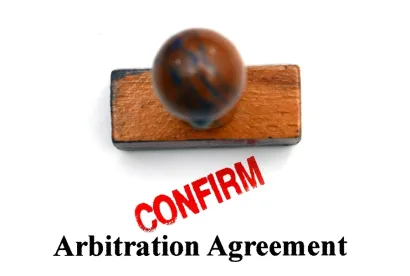Following on the heels of the Time’s Up and #MeToo movements, the New York State Legislature and the New York City Council have passed significant legislation aimed at providing greater protection against workplace sexual harassment. Consisting of 11 separate bills, the New York City Council passed the Stop Sexual Harassment in NYC Act on April 11, 2018, which awaits the final signature of Mayor de Blasio. Signed into law by Governor Andrew Cuomo one day later on April 12, 2018, the New York State Budget Bill for Fiscal Year 2019 further develops the landscape of existing state and citywide employer obligations.
Legislation Impacting New York State Employers
Prohibition of Nondisclosure Provisions for Sexual Harassment Claims
The New York State Budget Bill for Fiscal Year 2019 delivered a bevy of new sexual harassment laws impacting employers in New York State. Arguably the most sweeping change is the law’s prohibition of settlement agreements that prevent individuals from disclosing or discussing the facts underlying sexual harassment claims. Rather, an employer may include confidentiality language in a settlement agreement only when it is the settling individual’s preference, and employers must provide such individuals with a 21-day period to consider whether to accept confidentiality language covering their sexual harassment claims, along with a 7-day period after signing a settlement agreement to revoke it. Notably, this law does not bar provisions that require that the settling individual maintain the confidentiality of the terms of the agreement. Scheduled to take effect on July 11, 2018, this law will necessarily impact employer decision-making when weighing the option between entering into settlement discussions and litigating disputes.
Prohibition on Mandatory Arbitration Provisions for Sexual Harassment Claims
Likely impacting existing language in employment agreements, and possibly in company handbooks, the state’s new law amends the New York Civil Practice Law and Rules (CPLR) and bans contractual provisions that mandate confidential arbitration as the mechanism for resolving claims of sexual harassment, “[e]xcept where inconsistent with federal law.” It remains to be seen whether this provision will withstand federal preemption by the Federal Arbitration Act, but for the time being, the law takes effect on July 11, 2018.
Extension of Employer Liability for Sexual Harassment against “Non-Employees”
Taking effect immediately, the state’s new law imposes liability on employers for sexual harassment claims asserted by “non-employees” who provide services under a contract in an employer’s workplace (e.g., contractors, consultants, vendors, etc.). While non-employees are not traditionally afforded anti-discrimination protection under state and federal employment laws, the state’s law now assesses liability against employers who “knew or should have known” about the sexual harassment of a non-employee and failed to take “immediate and appropriate corrective action.”
Mandatory Sexual Harassment Policies and Training
Effective on October 9, 2018, the state’s law tasks the New York State Department of Labor (NYSDOL) to consult with the New York State Division of Human Rights (NYSDHR) and create a model sexual harassment prevention policy that all employers must either implement or use in devising their own written policies that meet or exceed the minimum standards established by the NYSDOL. Policies must be distributed to all employees, and notably, must include a “standard complaint form” for use by employees.
Additionally, the NYSDOL and NYSDHR will create a model interactive sexual harassment prevention training program that employers can either implement or use to create their own training program. Trainings must include five specific subject areas outlined in the law, including: (1) an explanation of sexual harassment; (2) examples of unlawful conduct; (3) state and federal laws addressing sexual harassment and remedies; (4) conduct and responsibilities of supervisors; and (5) information concerning employees’ rights and all available forums to adjudicate complaints. Employers must conduct trainings on an annual basis for all employees, including managerial and supervisory employees.
Legislation Impacting New York City Employers
Required Interactive Anti-Sexual Harassment Training
Similar to the state’s law, Introduction 632-A of the Stop Sexual Harassment in NYC Act (“the Act”) requires that private employers with 15 or more employees conduct “interactive” anti-sexual harassment training on an annual basis for interns and all employees, including managerial and supervisory employees, beginning on April 1, 2019. The Act provides a lengthier non-exhaustive list than the state’s law of subjects that annual trainings must cover (e.g., detailing internal and administrative agency complaint processes, employer anti-retaliation policies, etc.), and requires that trainings be participatory in nature, whether accessed via computer or with a live instructor.
In order to help employers meet this mandate, the law tasks the New York City Commission on Human Rights to create a series of online interactive training modules for access by employers. The original version of the bill sought to impose an additional mandate that managers and supervisors receive further training on the specific responsibilities of their positions in the prevention of sexual harassment and retaliation, but the proposed text is not included in the version passed by the New York City Council. The topic of supervisor responsibilities, however, is listed as a subject that annual trainings must cover.
Under the Act, employers will not need to train an employee until after 90 days of employment, nor retrain an employee who has received the required training at another employer within a particular training cycle. To demonstrate compliance with the law, the Act will require employers to maintain records of training for at least three years, including signed employee acknowledgments. Once the law is signed, NYC would join New York, Maine, Connecticut and California as one of a number of jurisdictions mandating sexual harassment training.
Longer Statute of Limitations for NYC Sexual Harassment Claims
Scheduled to take effect immediately, Introduction 663-A significantly impacts the viability of harassment claims brought by employees by extending the statute of limitations period for filing claims of sexual harassment with the New York City Commission on Human Rights under the New York City Human Rights Law (NYCHRL) from one year to three years.
Gender-Based Harassment Claims Apply to All NYC Employers
Also scheduled to take effect immediately, Introduction 657-A expands the reach of the NYCHRL and amends the law’s prohibition on gender-based harassment to apply to all employers—not only employers with four or more employees.
Displaying a City-Created Anti-Sexual Harassment Rights Poster
Introduction 630-A requires that the New York City Commission on Human Rights design an online-accessible anti-sexual harassment rights poster, along with an information sheet on sexual harassment. All employers will be required to display the poster in a conspicuous location where employees gather, and distribute the information sheet to employees at the time of hire. The law will take effect 120 days after the bill is signed into law.
The New York State Budget for Fiscal Year 2019 and the Stop Sexual Harassment in NYC Act impose additional reporting mandates on state and city agencies, as well as state contractors. Given the breadth of changes created by both laws, employers can expect an uptick in these types of claims and, accordingly, should review and update their policies as needed.
Monique Chase contributed to this piece.




 />i
/>i

